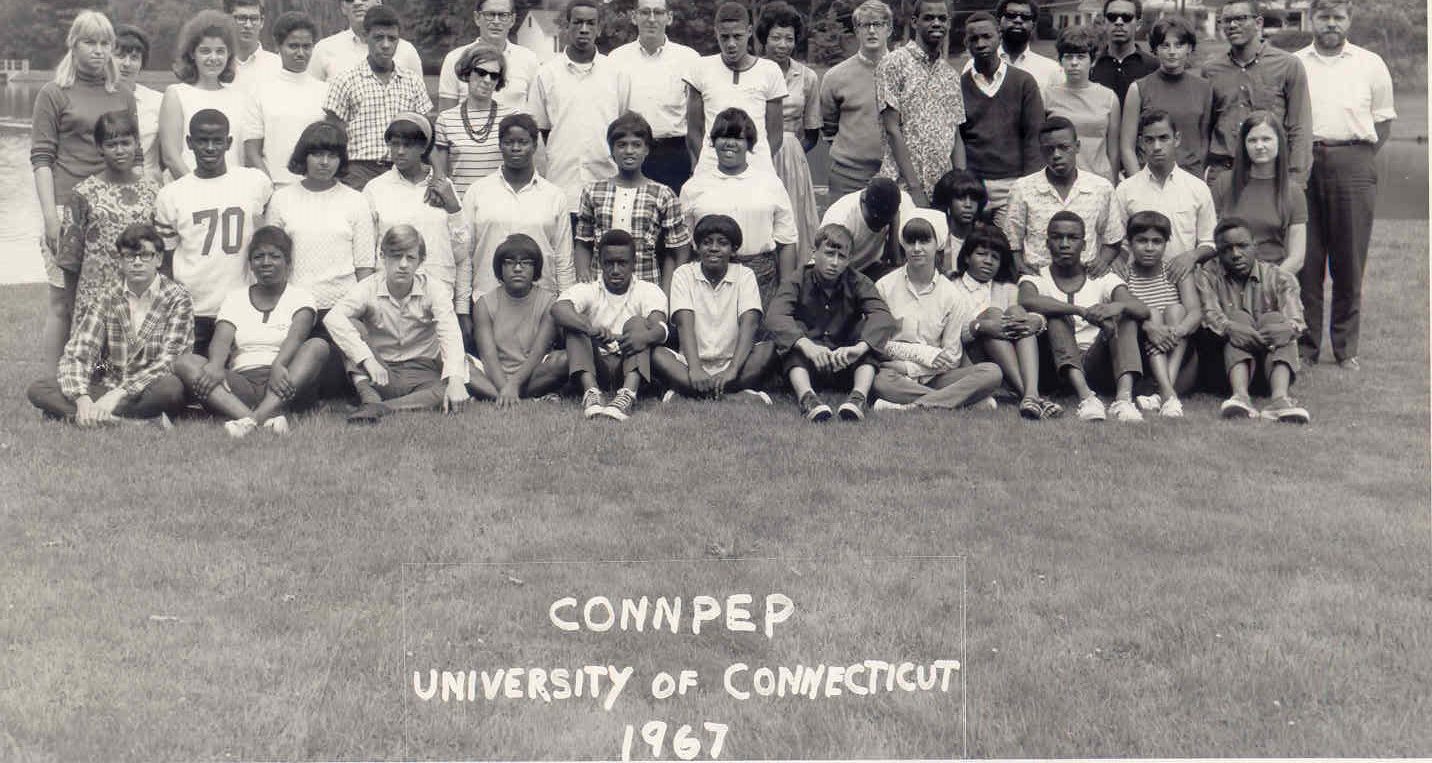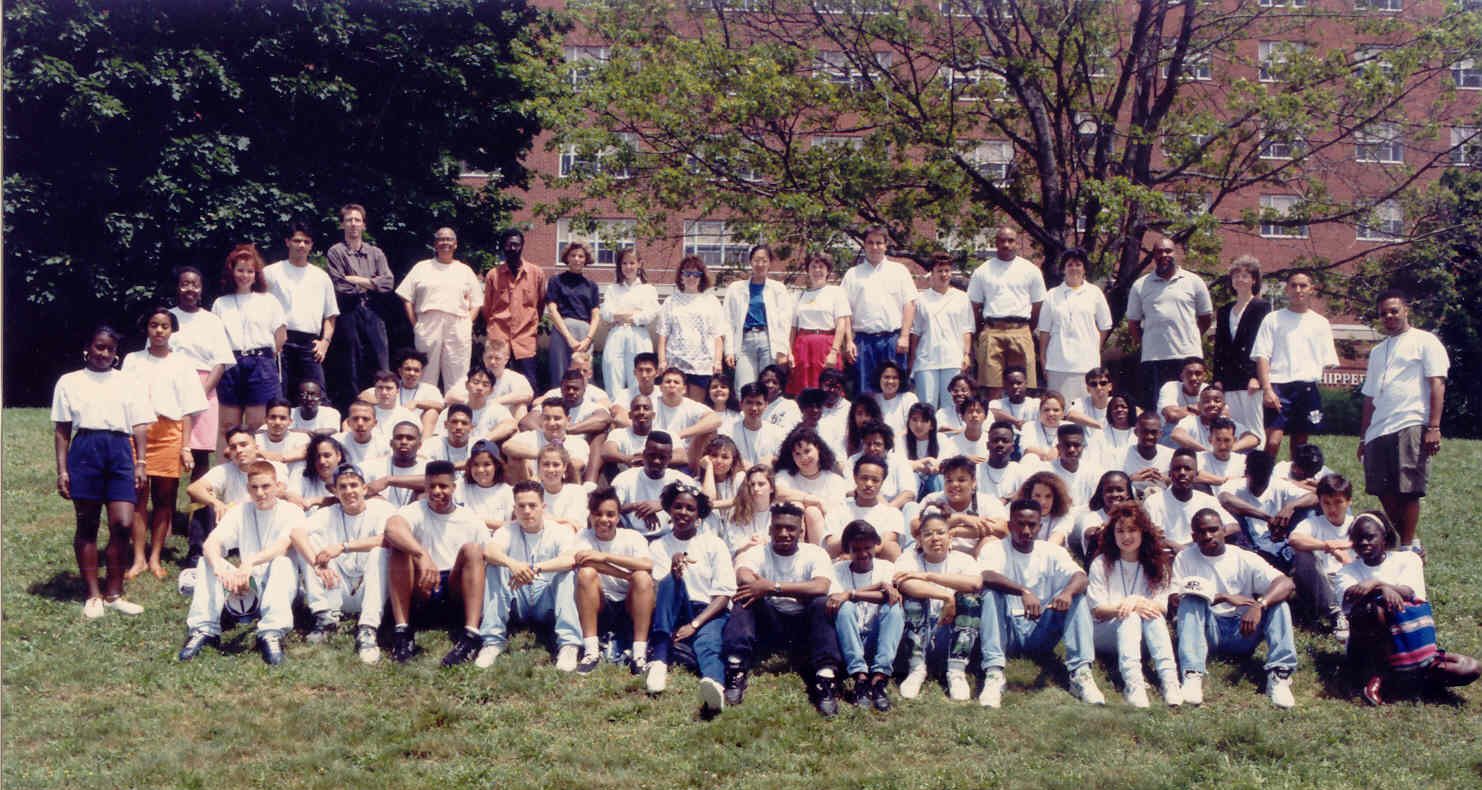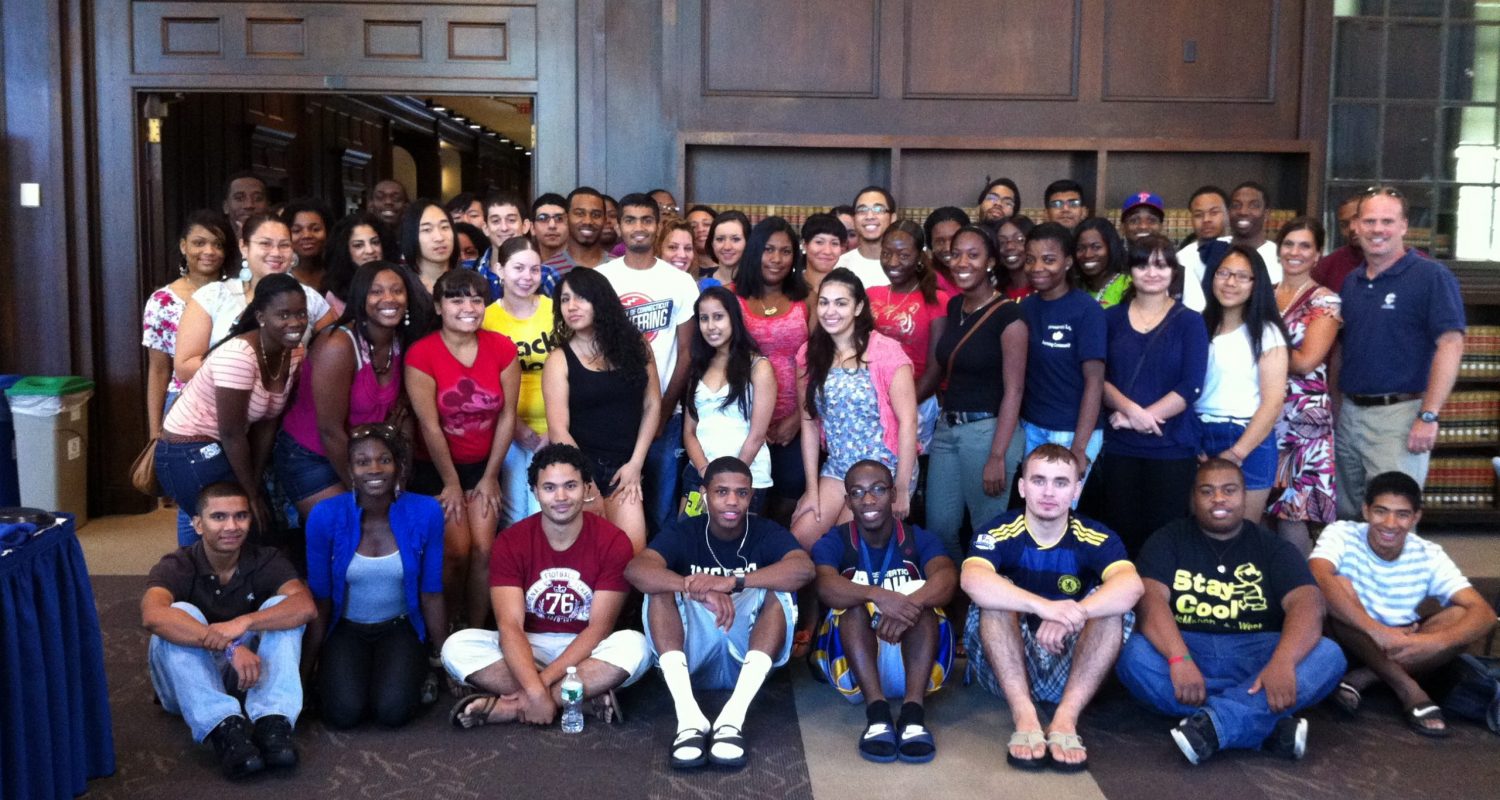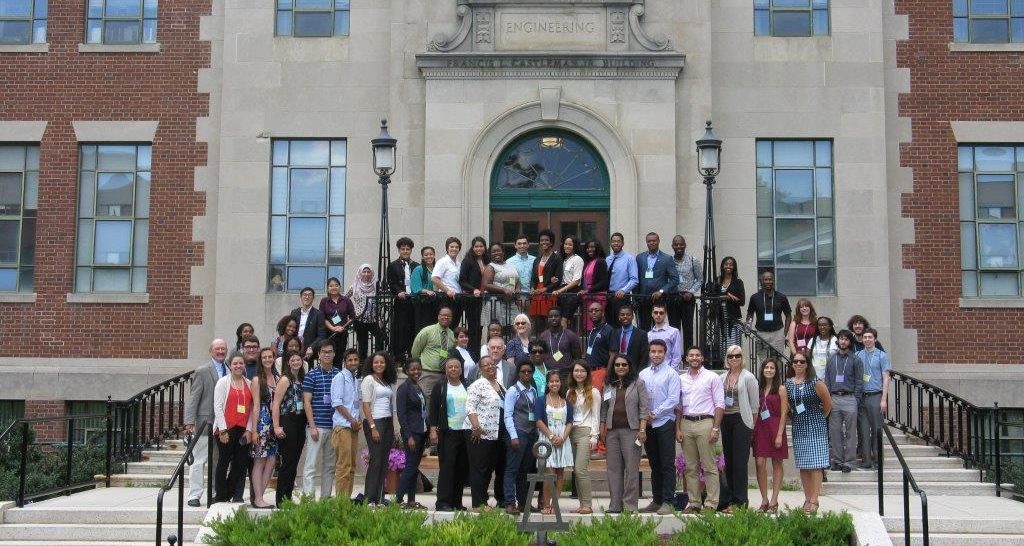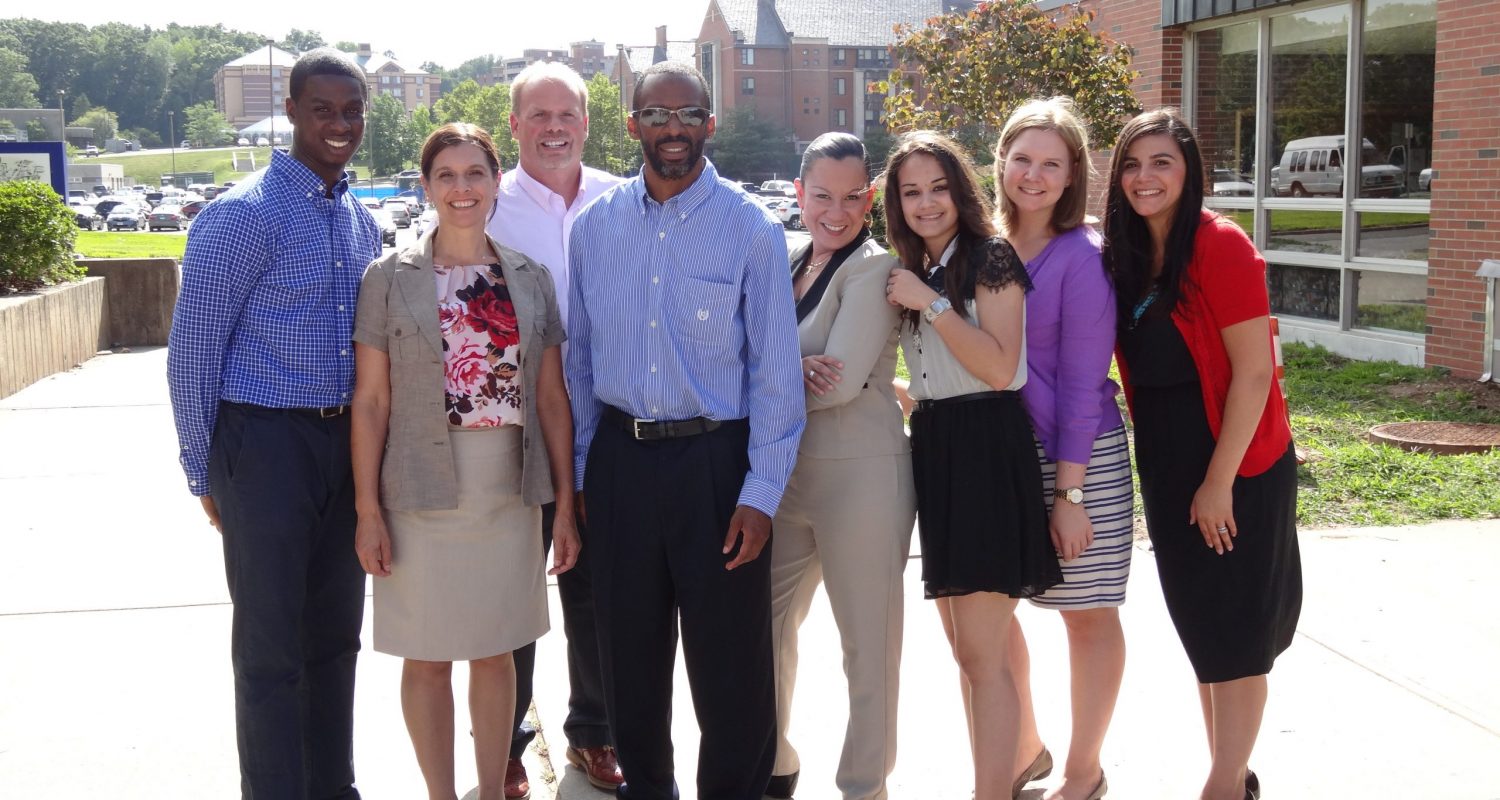In 1964, President Lyndon B. Johnson declared War on Poverty, giving rise to the federally funded college access programs for low-income students that were known as TRIO. By 1967, TRIO Upward Bound, Educational Talent Search, and Student Support Services programs were being launched at colleges and universities throughout the nation.
Eager to contribute to Johnson’s vision of a “Great Society”, the Connecticut Department of Education approached UConn president Homer Babbidge about developing a TRIO-like program for disadvantaged Connecticut high school youth. Babbidge agreed and the Connecticut Pre-Collegiate Enrichment Program (CONNPEP) was created, the University’s first educational opportunity program for underserved students. Soon after, UConn applied for and secured a federal TRIO Upward Bound grant to serve students enrolled in Connecticut’s urban high schools. The two funding sources combined to increase the number of students UConn served to help them gain access to college.
Unlike other TRIO programs across the nation, CONNPEP was unique because it was funded in part by the state. This commitment to serving Connecticut’s neediest citizens enabled the University to hire permanent full-time staff, which was essential to building a high-quality, long-term program. The program ran a summer component on campus each year for approximately 30 high school students. The goal was to prepare them for access to and success in higher education. CONNPEP advisors spent the academic year working with students in their high schools and even visiting their homes. The program eventually grew to serve nearly 100 students.
Also in 1967, an initiative for college students called Summer Program was launched. The goal was to prepare incoming low-income and/or underrepresented freshmen from the state’s urban centers for the rigors of University academics and acclimate them to campus life. During the intensive, six-week Summer Program, students took classes, attended workshops, engaged in enrichment activities, and received one-on-one advising. The program grew to serve 100-125 students each year at the Storrs and regional campuses. Students were required to successfully complete the Summer Program to matriculate to UConn in the fall of freshmen year. Then in 1970, the University obtained its first federal TRIO Student Support Services grant to supplement funding for the program.
In 1971, The Committee for the Education of Minority Students (CEMS) was established alongside the Summer Program. At the time, it was UConn’s only program designed specifically for minority students. CEMS served approximately 30-35 incoming freshmen each year who were identified as having academic need. The students arrived on campus three days prior to the start of freshmen year for an extended New Student Orientation. CEMS staff continued to work with the students throughout their tenure at UConn.
CONNPEP, Summer Program, and CEMS were initially managed separately and reported to the Vice President of Students Affairs until 1980, when they were reorganized under the Department of Special Academic Enrichment Programs (DSAEP). One year later, an advisory committee was created to address the high dropout rate among the University’s underrepresented students. The result was the establishment of the Center for Academic Programs (CAP) in 1983. Under CAP, Summer Program and CEMS merged into one access and retention program, called Student Support Services.
With unwavering support from the University and through a variety of different grant programs over the years, UConn also expanded its pre-college programming through federal TRIO grants Upward Bound, GEAR UP, and Educational Talent Search. Additional programs serving students in foster care included First Star Academy and UConn Rising Scholars.
In 2021, through support from the Connecticut Office of Higher Education, CAP established four Connecticut Collegiate Awareness & Preparation (ConnCAP) programs on each of the UConn campuses serving multiple state public high schools. In 2022, UConn was also awarded two new Upward Bound Programs located on the Avery Point and Waterbury campuses. Through a partnership with the Connecticut State Department of Education and the National College Advising Corps, UConn also established the UConn College Advising Corps program. UConn CAC is a college access program that provides direct advising and support to targeted, under-resourced high schools in the state.
In 2012, CAP added the Ronald E. McNair Postbaccalaureate Achievement Program (McNair), a federal TRIO program designed to prepare first-generation, low-income, and/or underrepresented minority students for doctoral studies. McNair provides students with extensive access to resources, involvement in research, and connections to other scholarly activities that will help increase their potential for earning a graduate degree. UConn’s McNair program is rare in higher education, as it is also one of a few that focuses exclusively on STEM fields of study.
CAP also added the Promoting Academically Successful Students (PASS) program in 2019 to further support college success for our student population. A program designed to support minority students who were on academic probation, PASS has helped hundreds of students over the years return to satisfactory academic progress and continue their journey towards a college degree from UConn.
In 2022, the Center for Academic Programs changed its name to the Center for Access and Postsecondary Success. The name change reflects the renewed mission to promote access and postsecondary persistence across the UConn system. After a long and rich history, CAPS stands as a symbol of UConn’s commitment to access and educational equity for students traditionally underrepresented in higher education.
